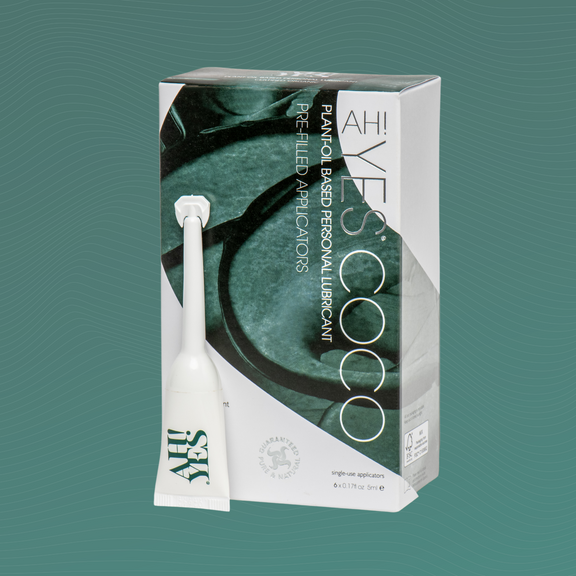8 Myths about lube debunked! Let's talk about pleasure, masturbation, menopause and more
Does the thought of talking about sex make you a little uneasy? Well, you're not alone! Many of us feel the same way, which is why we often turn to the internet for answers. While we definitely encourage open conversations about sex with trusted friends and healthcare professionals, we've decided to tackle some of the most commonly asked questions about lube to ease your curiosity.
- Does Lube Make Sex Better? Absolutely! Lubricants are like your personal wingman in the bedroom. Studies show that over 65% of women and 70% of men use lubricants to make sex more comfortable and pleasurable [1]. Lube can enhance pleasure, reduce friction, and make things more enjoyable. Look for options like AH! YES® WB for a natural feel without any sticky residue, taste or smell. You can even mix water-based and oil-based lubes for the ultimate pleasure combo!
- Can I Be Too Wet During Sex? Well, it's actually the opposite you need to think about. A wet vagina during sex is your body's way of saying, "I'm excited!" But sometimes, hormonal imbalances, medical conditions, or lifestyle choices can leave you feeling dry when you don't want to be. That's where vaginal moisturizers and lubes come to the rescue. Remember, when it comes to sex- the wetter, the better!
-
Can I Masturbate with Lube? Of course! Masturbation is a fantastic way to explore your own body and discover what feels good. Adding lube to the mix can enhance your comfort and pleasure. Just make sure to pick a lube that's compatible with your toys. AH! YES® WB works with most types, and if you prefer hand play, try AH! YES® OB or AH! YES COCO for nourishing, silky smooth options. Always check the label when deciding what's right for you.

Menopause and Lube
- What lube is best for sex after menopause? If you’re going through menopause, you may have noticed some changes in your intimate area. Vaginal dryness, irritation and pain caused by hormonal changes, are common issues during midlife. Choosing the right lube is a personal decision, but water-based lubricants can quickly rehydrate your intimate tissues and provide relief from irritation. If day-to-day dryness is a concern, consider a vaginal moisturizer for daily use. Plant oil-based lubes (always choose organic where possible) are designed to soothe and protect your skin and can reduce the risk of injury during sex.
- Are Silicone Lubricants Okay for Menopause? Silicone lubes offer long-lasting lubrication but don't rehydrate dry tissues as they contain no water. Plus, they can create a barrier over the skin that may trap dirt and bacteria. To play it safe during menopause, we recommend sticking to natural, pH-matched water-based products for your comfort.
Pregnancy and Lube
- Can using lube during pregnancy increase infections? Most won't, but some lubes may increase your risk due to their ingredients. Look for pH-matched water-based lubes to avoid disruptions to your vaginal pH. And if you're experiencing dryness or discomfort during pregnancy, using lube is a great option for easing friction and increasing comfort. Make sure you are choosing the best and most natural ingredients during pregnancy. Speak to your healthcare professional if you are unsure.
- Can You Use Lube During Pregnancy? Absolutely! Sex during pregnancy is safe if your healthcare provider hasn't advised otherwise and you don’t have any complications. Using lube can be especially helpful if hormonal changes are causing dryness or discomfort. Just make sure to choose the best and most natural ingredients for your peace of mind. See our ingredients policy here for more information about our ingredients.
- Does Using Lube Prevent Pregnancy? Nope, lube is not contraception, and some lubes can even damage condoms, especially oil-based ones. If you're using condoms for birth control, stick to water-based lubes labelled as condom compatible. Spermicide, on the other hand, is a form of contraception, so don't confuse the two. If you're actively trying to get pregnant, consult your healthcare provider to make sure you're using the right products.
Remember, everyone's preferences are different, so choose the lube that suits your needs and always communicate with your partner about what feels best for both of you. Stay curious, stay safe, and enjoy your intimate moments!
[1] UNFPA



